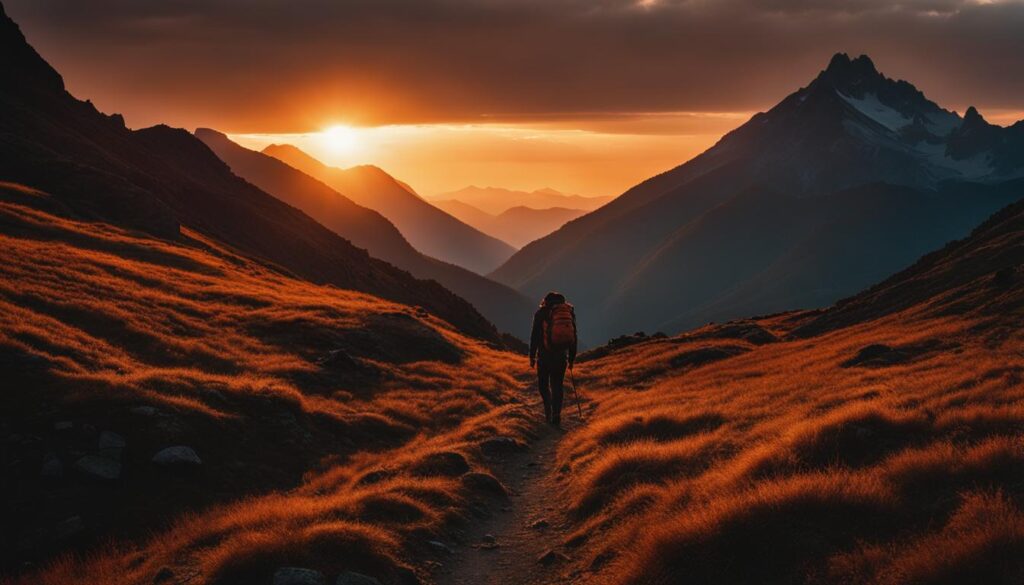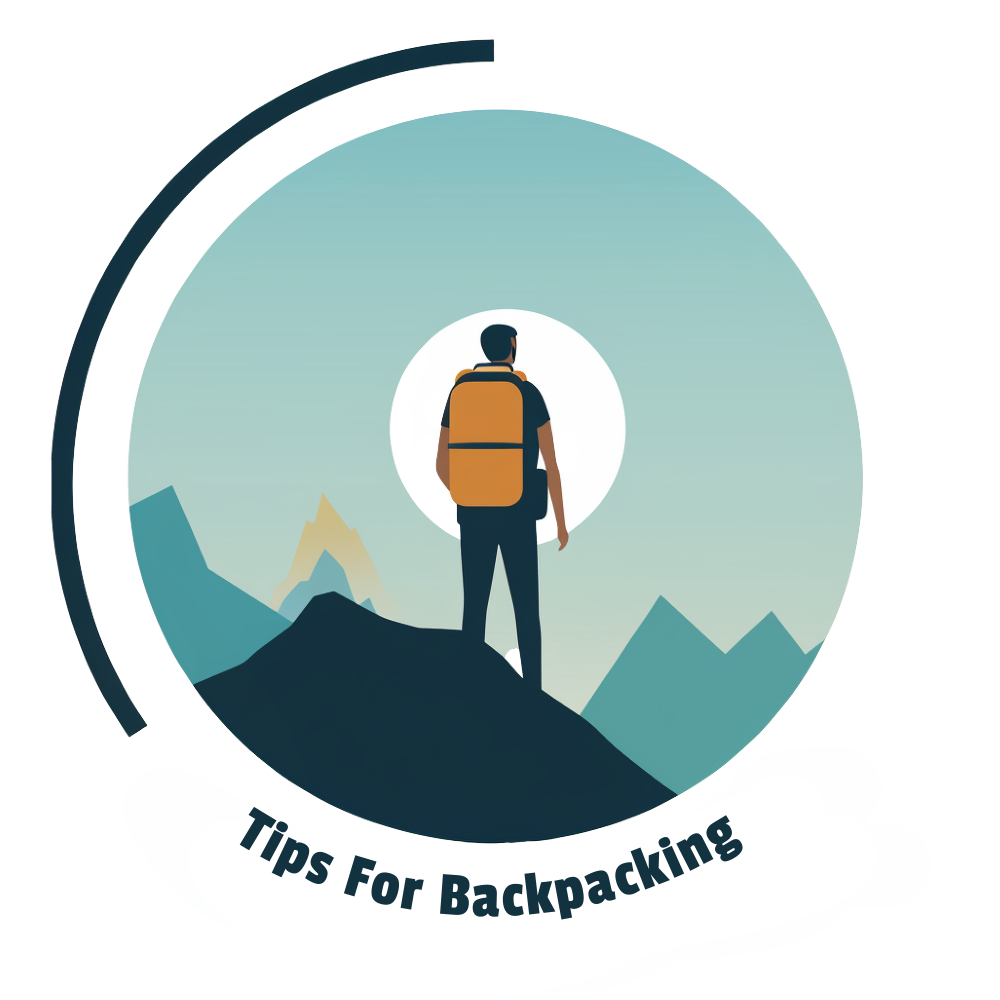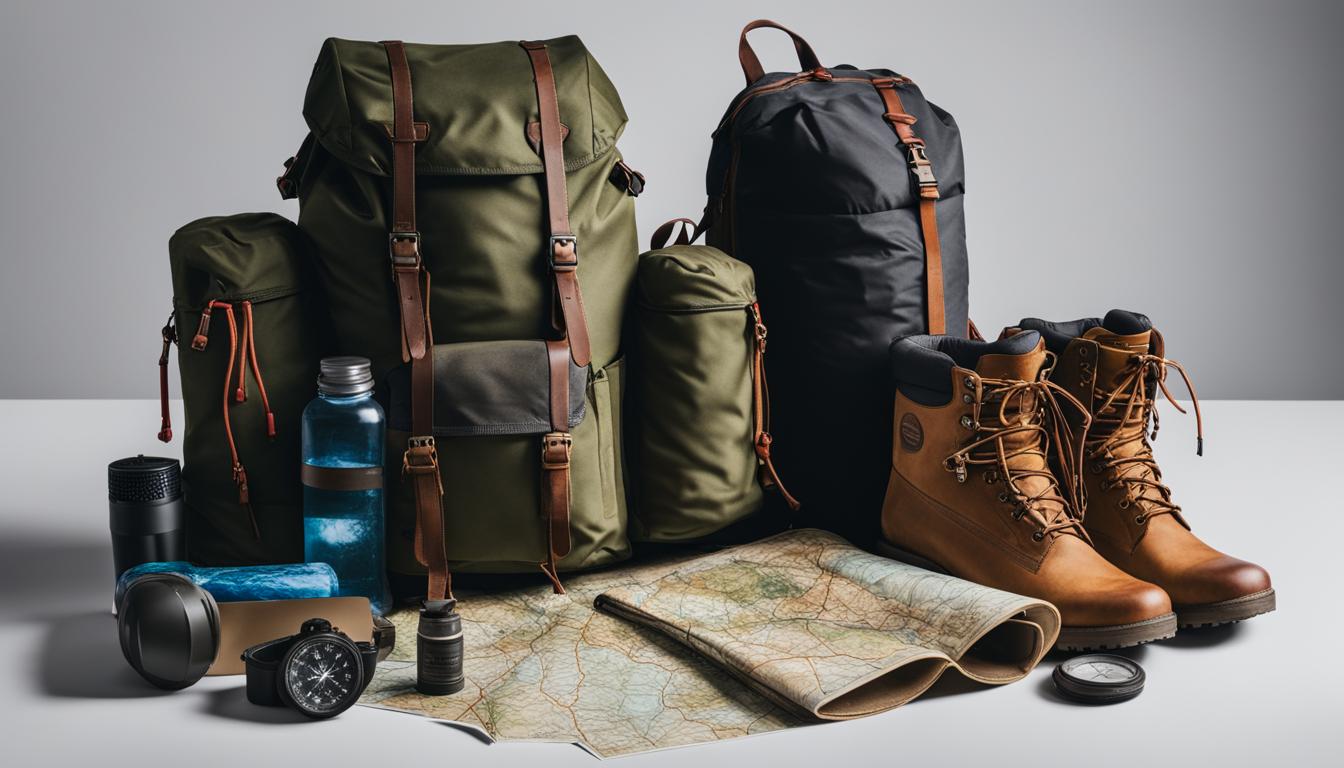Embarking on your first backpacking adventure can be an exciting and transformative experience. As a beginner, it’s important to prepare and equip yourself with the right knowledge and gear to make the most out of this journey.
When it comes to backpacking, there are a few essential tips every beginner should keep in mind. From packing the right essentials to proper preparation, these tips will help ensure a successful and enjoyable backpacking trip.
Key Takeaways:
- Proper preparation and research are crucial for a successful backpacking trip.
- Pack essential gear and avoid overpacking.
- Consider the difficulty and duration of your trip, especially for solo backpacking.
- Inform someone about your detailed plan and carry a personal locator beacon for safety.
- Immerse yourself in the beauty of nature and enjoy the journey!
Common Mistakes to Avoid
When embarking on your first backpacking adventure, it’s important to be aware of common mistakes that rookies often make. By avoiding these blunders, you can ensure a smoother and more enjoyable experience.
Overpacking
One of the most common mistakes beginners make is overpacking. It’s tempting to bring everything you think you might need, but carrying too much gear can weigh you down and make your hike more challenging. Stick to the essentials and pack light. Consider the duration of your trip, the weather conditions, and your personal needs. Remember, less is often more when it comes to backpacking.
Tackling Too Many Miles
Another mistake rookies often make is attempting to tackle too many miles in a day. It’s important to pace yourself and consider the terrain and elevation gain of your chosen route. Pushing yourself too hard can lead to exhaustion, injuries, and an overall negative experience. Take the time to enjoy the journey, appreciate the scenery, and listen to your body’s limits.
Lack of Navigational Skills
Having basic navigational skills is crucial for a successful backpacking trip. Beginners sometimes underestimate the importance of understanding maps, using a compass, and familiarizing themselves with the trail markers. Lack of navigational skills can lead to getting lost, choosing unsuitable camping spots, and unnecessary detours. Take the time to learn these skills before heading out on your adventure.
| Common Mistakes to Avoid | Consequences |
|---|---|
| Overpacking | Heavy load, slower pace, increased fatigue |
| Tackling Too Many Miles | Exhaustion, injuries, negative experience |
| Lack of Navigational Skills | Getting lost, unsuitable camping spots, detours |
Tips for a Successful First Solo Backpacking Trip

Embarking on a solo backpacking trip can be an exhilarating and life-changing experience. The freedom of exploring nature at your own pace and the sense of accomplishment that comes with self-reliance are truly empowering. However, proper preparation and research are crucial to ensure a safe and successful adventure.
When venturing out on your first solo backpacking trip, it’s essential to start with baby steps. Begin by choosing familiar trails and keeping your trips relatively short in duration. This will allow you to become accustomed to the challenges and routines of backpacking on your own. As you gain confidence and experience, you can gradually increase the difficulty and duration of your trips.
One of the key aspects of preparing for a solo backpacking adventure is ensuring that you have the right gear. Research and invest in quality equipment that is suitable for your needs and the terrain you’ll be traveling through. This includes a reliable backpack, lightweight camping gear, appropriate clothing for various weather conditions, and essential navigation tools such as a map and compass.
Safety should always be a top priority when backpacking solo. It’s crucial to inform someone about your detailed trip plan, including your intended route and expected return date. Additionally, consider carrying a personal locator beacon (PLB) for emergency situations. PLBs can transmit your location to search and rescue teams in case you get lost or injured. Familiarize yourself with Leave No Trace principles and practice proper wilderness ethics to minimize your impact on the environment.
By following these tips and being well-prepared, you can embark on a memorable and enjoyable solo backpacking journey. Remember, solo backpacking allows you to connect with nature, challenge yourself, and gain a deeper understanding of your own capabilities. So, lace up your hiking boots, pack your backpack, and set out on an adventure that will leave you with lasting memories and a sense of accomplishment.
What Are Some Tips for Overcoming Challenges on a First Backpacking Adventure?
When facing overcoming firsttime backpacking challenges, start with proper preparation. Research the trail, pack essential gear, and train physically to build stamina. Mentally, stay positive and flexible, adapting to unexpected obstacles. Seek advice from experienced hikers, and remember that overcoming challenges can lead to a rewarding adventure.
Conclusion
Embarking on my first backpacking adventure was an experience like no other. From the excitement of planning and preparing to the thrill of exploring new trails, it was a journey that I will never forget.
By avoiding common mistakes and learning from experienced backpackers, I was able to make the most out of my trip. I packed smart, prioritized essential gear, and resisted the temptation to overpack. Tackling a suitable number of miles per day and honing my navigational skills allowed me to navigate the trails with confidence.
Whether it was the breathtaking views, the peaceful solitude of solo backpacking, or the camaraderie of a group adventure, my first backpacking experience was truly memorable. The lessons I learned about self-sufficiency, resilience, and appreciation for nature will stay with me for a lifetime.

